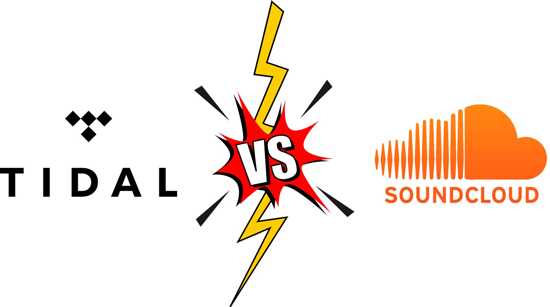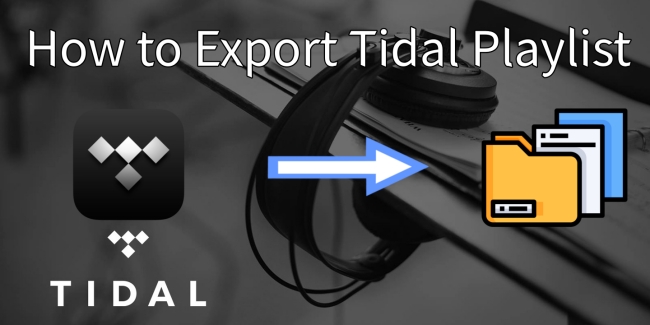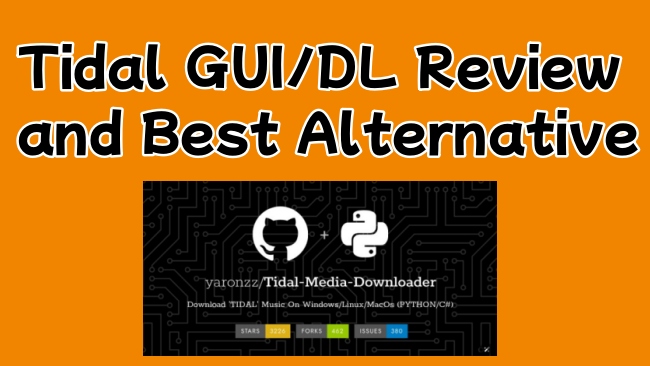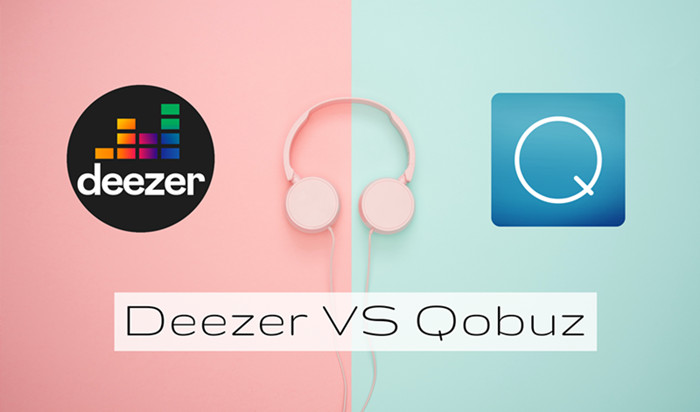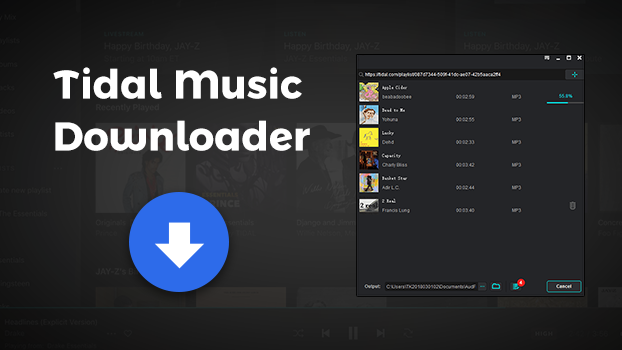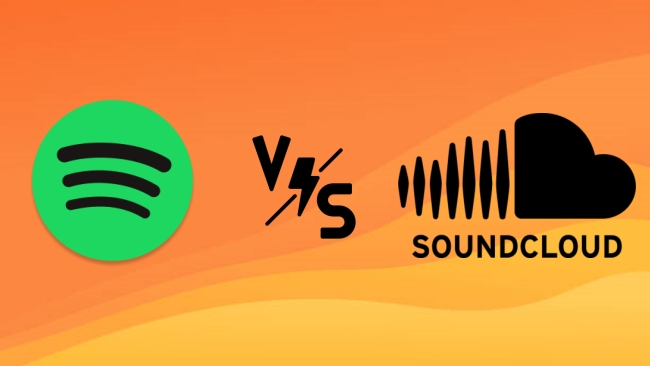Whether you grew up in the age of vinyl records, CDs, or MP3s, online streaming is the modern way to consume music. Music streaming services have sprung up in recent years. They all attract users with a variety of features and functions. For audiophiles who are in high demand for music sound quality, both Tidal and Amazon Music are good choices. However, many users are not familiar with these 2 platforms and have no idea Tidal vs Amazon Music, which one is better. If you are also hesitant and don’t know which platform is your perfect match, this post comes to help. In the following content, you will see a detailed comparison between Tidal and Amazon Music in diverse aspects. After reading this post, you will have a better understanding of these 2 services and find the one that meets your demands.
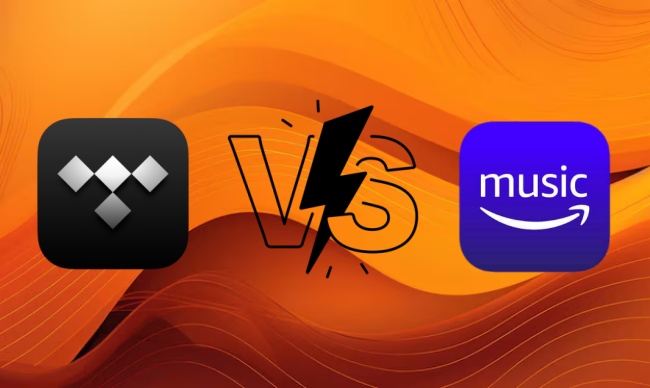
Part 1. Overview: Amazon Music vs Tidal
What is Tidal?
Tidal is a subscription-based music streaming service, launched in 2014 by Swedish public company Aspiro. It stands out from the crowded music industry due to the high-fidelity music it offers. With a Tidal subscription, you have the ability to enjoy music with high quality, including Tidal MQA, Dolby Atmos, and 360 Reality Audio. Until 2023, Tidal has roughly 4.2 million subscribers. No matter whether you are a casual listener or a music lover, you can find the music you like because Tidal’s vast music library contains over 100 million songs. Also, you can get multiple curated playlists and original content. Except for the mobile device and computer, you can also access Tidal on a variety of devices, such as Bluetooth speakers, smart TVs, and so on.
-
😀 Pros
- A vast catalog of over 100 million songs
- High-fidelity music
- Available on many devices
- Official integration with diverse DJ apps
- Personalized recommendations based on your music taste
- Discounts for students, military people, and first responders
-
☹️ Cons
- The subscription fee is high
- Can only download music on mobile phones
- Free version only has limited features
What is Amazon Music?
Amazon Music is a famous music streaming platform and digital music store operated by Amazon. This service allows users to stream music online and purchase digital tracks as well, giving you the ability to get full control over the music you like. As of 2020, Amazon Music has boasted 55 million subscribers. It is popular around the world. This platform offers multiple ways to access its vast music library. You can stream online music on the Amazon Music web player or on the official Amazon Music app which is available on a variety of devices, such as Windows, Mac, iOS, and Android devices. Beyond these basic platforms, Amazon Music extends its accessibility to some smart TVs and automobiles, ensuring your seamless music experience across different environments.
-
😀 Pros
- High-quality music like HD and Ultra HD
- Intelligent music and podcast recommendations
- Extensive music library
- Listen to music with Alexa voice control
- Valid on diverse devices
- Allow subscribers to get offline playback
-
☹️ Cons
- Don’t offer audiobooks and videos
- Not accessible in all countries and regions
- Free account users only get limited features
Part 2. Tidal vs Amazon Music: Detailed Comparison in Different Aspects
Now that you already have a basic understanding of these 2 music streaming services. It’s time to dive deeper and examine the detailed comparison between Tidal and Amazon Music across several key aspects. Based on your personal situation, you can take the following information as a reference and find the music platform that meets your demands.
2.1 Amazon Music HD vs Tidal: Plans and Price
When it comes to subscription-based music services, most people care about the plans and price. It's important to know Amazon HD Music vs Tidal, which one is more worthy. Tidal and Amazon Music both provide different layers of premium subscriptions for users to choose from.
Tidal used to offer HiFi and HiFi Plus plans, but it merged these 2 plans to become one in April 2024. This basic premium plan costs $10.99 per month. You can get a 30-day free Tidal trial before you subscribe. Additionally, it has discounts for families, students, military, and first responders. If you want to mix your Tidal music, you will need to add a DJ extension to your plan.
If you have an Amazon Prime subscription, which costs $14.99/month, Amazon Music Prime is included in it. You are able to enjoy the Amazon Music All-access playlists and many other benefits. To unlock all the advanced features, you can pay $10.99 per month to subscribe to Amazon Music Unlimited.
| Tidal | Amazon Music | |
|---|---|---|
| Individual | $10.99/month |
Prime: $14.99/month Unlimited: $10.99/month |
| Student | $4.99/month | Unlimited: $5.99/month |
| Family | $16.99/month | Unlimited: $16.99/month |
| Single-device plan | ✘ | Unlimited: $5.99/month |
| DJ Extension(with Individual plan) | $9.00/month | ✘ |
2.2 Amazon HD Music vs Tidal: Music Library
There is no doubt that the music library is the most crucial factor in determining whether or not music streaming is appealing to users.
In Amazon Music’s music library, you can find more than 100 million soundtracks and a growing collection of playlists, podcasts, and radio stations. Tidal, on the other hand, has an extensive music catalog with over 100 million songs available for streaming or download. These include popular artists across genres, as well as exclusive content and live performances. Tidal also offers over 650 thousand videos.
Plus, both Amazon Music HD and Tidal HiFi offer great options for music discovery. On the home page of Amazon Music, you are able to get numerous recommended songs in the Songs for you or the Playlists for you section. All these recommendations take many factors into consideration, such as your favorite artists and recently played tracks.
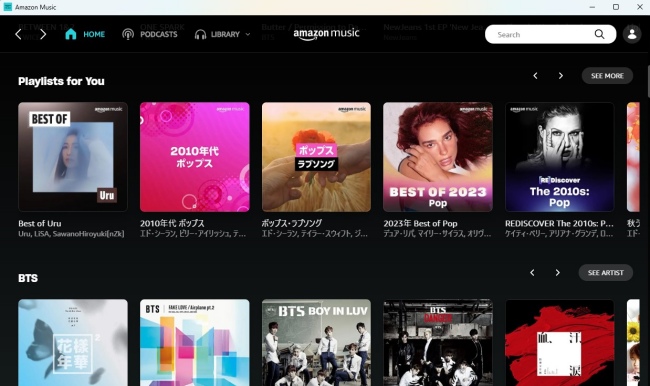
Tidal, on the other hand, has My Mix which creates playlists based on your listening history. Plus, Tidal HiFi offers exclusive content and artist interviews, which is a great way to discover new music. If you want to discover artists and songs that may match your music taste across different genres, you should not miss the My Daily Discovery feature. It is a personalized mix based on your music listening pattern, providing new music and artists you might not have listened to.
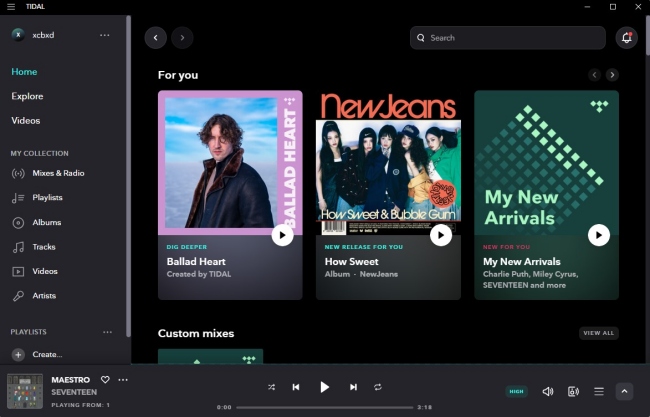
2.3 Amazon Music Quality vs Tidal
Both Amazon Music HD and Tidal offer high-quality audio streaming, but there are some differences in their sound quality.
Amazon Music HD and Unlimited offer songs in HD and Ultra HD. Both are encoded using the lossless FLAC code. HD songs have a bit depth of 16 bits, a sample rate of 44.1kHz, and a bit rate of up to 850kbps, the same as CD-quality audio. Ultra HD songs have a bit depth of 24 bits, a sample rate of up to 192kHz, and a bit rate of up to 3730kbps, higher than CD-quality audio. However, Ultra HD songs are only available for selected tracks.
Tidal contains 3 audio quality options – Low, High, and Max. The standard Low quality gives you a 320 kbps music file. When you switch to High quality, you will get lossless FLAC audio at 16-bit, 44.1 kHz, while Max quality offers lossless FLAC audio at 24-bit, 192 kHz. If you own one Tidal subscription, you can even get MQA music, which is 24-bit audio with sample rates up to 96 kHz. Its average bit rate is 9216 kbps. Tidal also prepared spatial music options like Dolby Atmos and 360 Reality Audio.
| Amazon Music HD | Amazon Music Unlimited | Tidal High | Tidal Max | |
|---|---|---|---|---|
| Audio Format | FLAC | FLAC | FLAC | HiRes FLAC |
| Bitrate | 850kbps | 3730kbps | 1411kbps | 9216kbps |
| Sample Rate | 44.1kHz | 192kHz | 44.1kHz | 192kHz |
| Bit Depth | 16bits | 24bits | 16bits | 24bits |
2.4 Tidal vs Amazon Music: Availability
The availability of a music service across multiple regions and devices is crucial for its success. Most users will take the availability as an important factor when choosing a music service. It enhances user experience and increases accessibility.
Both Tidal and Amazon Music have official apps on Windows, Mac, iPhone, and Android devices. Also, you can visit their music library on their official web player. If you have a Tidal subscription, you can utilize the Tidal Connect feature to listen to Tidal music on more devices, even your smart TVs and wearables. Amazon Music is also integrated with Amazon’s Echo and Alexa-enabled devices, providing seamless voice-controlled music playback.
However, Amazon Music and Tidal are not available on some devices like MP3 players. Therefore, the TunesMake Tidal Music Converter is recommended if you want to listen to your favorite music on any device without limits. Go to Part 4 and you can explore more helpful information.
Until now, the Tidal music streaming service has been available in 61 countries globally, including Brazil, Canada, Colombia, the United States, the United Kingdom, and more. If you want to check whether your country is able to Tidal service or not, you can visit available country list on Tidal to get the full list of Tidal-supported countries.
Amazon Music is a globally accessible music streaming service. It is now available in 46 countries, slightly less than Tidal. Amazon Music Unlimited can be used in Argentina, Belgium, Bolivia, Chile, Colombia, Peru, Uruguay, Finland, Greece, Sweden, etc.
2.5 Tidal vs Amazon Music HD: User Experience
1. Lyrics
There is an additional feature in Amazon Music HD that the Tidal platform lacks. Built-in lyrics are available through Amazon Music HD, not in Tidal. Tidal offers popular concerts, and soundtracks from artists, but these songs are not available on Amazon Music HD.
2. Interface
Both Amazon Music and Tidal offer user-friendly interfaces. In contrast, Tidal's user interface is easier to navigate than Amazon Music's. The mobile apps for both music platforms have a similar layout. The main navigation bar is located at the bottom of the screen and contains the Home, Music Collection, and Find buttons. Amazon Music has an extra Alexa button. You can ask Alexa to play the music you like hands-free! And on Tidal is a Video button where you can find all kinds of music videos.
3. Offline Playing
Both Tidal HiFi and Amazon Music HD have the ability to download music for offline listening1. However, the Tidal desktop doesn't have an option to download music while Amazon Music's desktop and mobile apps can download songs. Don't worry, you can use TunesMake Tidal Downloader to download songs from Tidal to your computer.
4. Network
The Tidal live app meets the challenges of the web in the best possible way. It has low network requirements. Tides are effective in improving network quality despite fluctuations. It delivers high-quality music most of the time. This method of working on the web lags behind Amazon Music HD. It reacts to network changes by sending out interrupted music tracks. Compared to Amazon Music HD, Tidal's dynamic tracks seem more authentic, and it's quick to convince users.
Part 3. Tidal Music vs Amazon Music HD: Detailed Comparison Table
Overall, there are pros and cons to both Tidal HiFi and Amazon Music HD. Tidal HiFi offers higher bitrates, but no lyrics and no desktop offline mode. Amazon Music HD offers high-definition music-quality songs and integration with the Alexa voice assistant, but few music videos and podcasts. So, which one to choose depends on which aspect you value most.
| Tidal | Amazon Music | |
| Music Library | Over 100 million songs | Over 100 million songs |
| Price | $10.99/month | $10.99/month (Amazon Music Unlimited) |
| Sound Quality | Up to 850kbps in FLAC | Up to 1411kbps in FLAC |
| Music Videos | ✔ (Over 650 thousand) | ✔ |
| Podcasts | ✔ | ✔ |
| Radios stations | ✔ | ✘ |
| Lyrics | ✘ | ✔ |
| Offline Playback | Mobile only | Mobile and computer |
| Free Trial | ✔ (30 days) | ✔ (30 days) |
Part 4. Bonus Tip: How to Play Tidal Music on All Devices
If you think Tidal meets your demands and you want to start your music with it, the most important thing you should notice is that Tidal only allows users to download music on the mobile app. But some of you may accustomed to listening to music on your desktop or other devices. In such a case, you will need a powerful third-party tool to help you remove the downloading limitation. Why don’t you try the TunesMake Tidal Music Converter?
TunesMake Tidal Music Converter is a professional and functional music converter designed for Tidal users. Even if you don’t have a Tidal subscription, you can install this tool on your desktop and utilize it to download any track, playlist, album, or podcast you like from Tidal to your computer’s local folder. Its advanced decryption technology will remove the Tidal DRM protection automatically. As a result, with the help of the TunesMake Tidal Music Converter, you have the ability to save Tidal music as a local audio file in diverse formats, such as MP3, M4A, FLAC, and so on. Furthermore, the Tidal program smartly keeps all the ID3 tags and original sound quality to ensure your music enjoyment. After downloading, feel free to import the downloads to other players or devices for offline playback.

TunesMake Tidal Music Converter –
Download Tidal Music Locally to Play on Any Device
- Download any Tidal content, including songs, albums, playlists, and artists
- Convert Tidal music to MP3, FLAC, AIFF, WAV, M4A, and M4B
- Preserve a whole set of ID3 tag information in the downloaded Tidal songs
- Handle the conversion of Tidal music up to 22X faster speed and in batch
Security Verified. 100% Clean & Safe.
Conclusion
Tidal vs Amazon Music, which is better? After reading the detailed comparison between Tidal and Amazon Music above, I believe that you already have a better understanding of these 2 music services and find the one that is better for you. If you select Tidal and want to remove its downloading restrictions, you can consider using the TunesMake Tidal Music Converter. It’s definitely the best choice to help you download Tidal music and save it on your device permanently. After that, it’s a piece of cake to listen to your favorite Tidal music on other devices offline.
Related Articles
- 1
- 2
- 3
- 4
- 5
- 6
- 7

